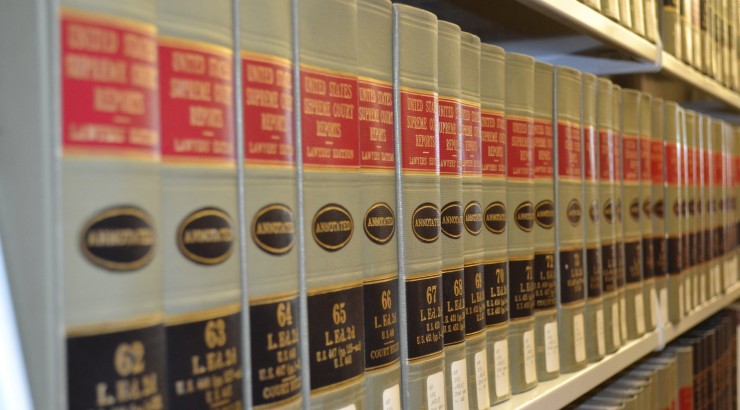Chapman University Fowler School of Law Alum Finds Niche in National Security
January 25, 2016
When asked what his hopes were as he entered law school, Chapman University Dale E. Fowler School of Law alumnus
Sean Bigley (’13)
will tell you he had two: he didn’t want to be bored with his career choice, and he wanted to build something meaningful. After a pre-law school career that included serving on the White House staff; a political appointment at the Department of Homeland Security; working as an investigator for the United States Office of Personnel Management; and a brief stint as a police officer, the thought of pushing paper around for a law firm made him a little nervous.

Alumnus Sean Bigley
Three years out of law school, it’s unlikely that Bigley would ever call his job boring. Just six months after passing the bar, he decided to take the risk of starting his own firm inspired by his time as a federal investigator. His firm,
Bigley Ranish, LLP
, deals exclusively in federal security clearance matters, and represents clients in administrative tribunals at agencies like the CIA and Department of Defense.
As a law student at Chapman University Fowler School of Law, Bigley heard time and again the benefits of niche law practices. Instead of joining a large firm that handled any number of topics, he realized that specializing could offer a competitive edge in establishing a client base. As he considered specialties, taking his past work into consideration, he quickly noticed that no firm had yet dedicated itself solely to defending federal employees and contractors appealing adverse security clearance decisions. Roughly 80 percent of denied security clearance applicants choose to represent themselves on appeal, he said, which left a large untouched market. Of those applicants, Bigley also observed that many needlessly lost their cases due to a lack of competent legal representation.
In his previous work Bigley was responsible for conducting the investigations used to determine security clearance eligibility. Now, his firm helps hundreds of clients per year from around the world – ranging from members of the military to nuclear scientists and even intelligence operatives – to defend their security clearances against allegations of misconduct or alleged threats to national security. Bigley said that since starting his firm, no two days or clients are alike, and that running his firm has been an entirely different experience from his work with the government.
“As an investigator, I never really thought about what happened to my cases after turning them over for adjudication,” Bigley said. “Being on the other side of the table is different. No one is going to argue that protecting national security isn’t of paramount importance, but it turns out that there are also a lot of good people swept up in the system. For these people, a denied or revoked security clearance is usually a career-ender. It’s a nice feeling when I can deliver them justice.”
Aside from the typical struggles of starting a firm – such as developing a business plan, learning to build a website and actually finding clients – Bigley said working with federal employees, including those whose very identities are classified, added another series of unique concerns when it comes to protecting clients’ personal information. Typical cases involve, for example, substance abuse, infidelity, ties to hostile foreign countries, and previously undiscovered criminal conduct – all issues ripe for blackmail or espionage in the wrong hands.
“Our clients entrust us with their deepest personal secrets, and we don’t take that lightly,” Bigley said.
Although his current career was inspired by his work before law school, Bigley credits much of his success to his time at Fowler School of Law: “Chapman University Fowler School of Law gave me a phenomenal education and I truly believe that I made the right decision in going there.”
He advises other students to take full advantage of their degrees and to think outside of the traditional attorney career path.
“I think so many law students feel pressure to fit into the mold of the ‘traditional’ lawyer, but there is a lot you can do with a JD that you probably haven’t thought of,” he said. “My advice is to not be afraid to take risks. Starting my own firm was a huge risk and I had nightmares that it would fail spectacularly. But if I didn’t at least try, I’d have regretted it forever.”
Learn more about Bigley Ranish LLP
.
Are you an alumnus? Have you recently changed firms, been promoted, published or made partner and would like to be featured?
Send us a class note
!


